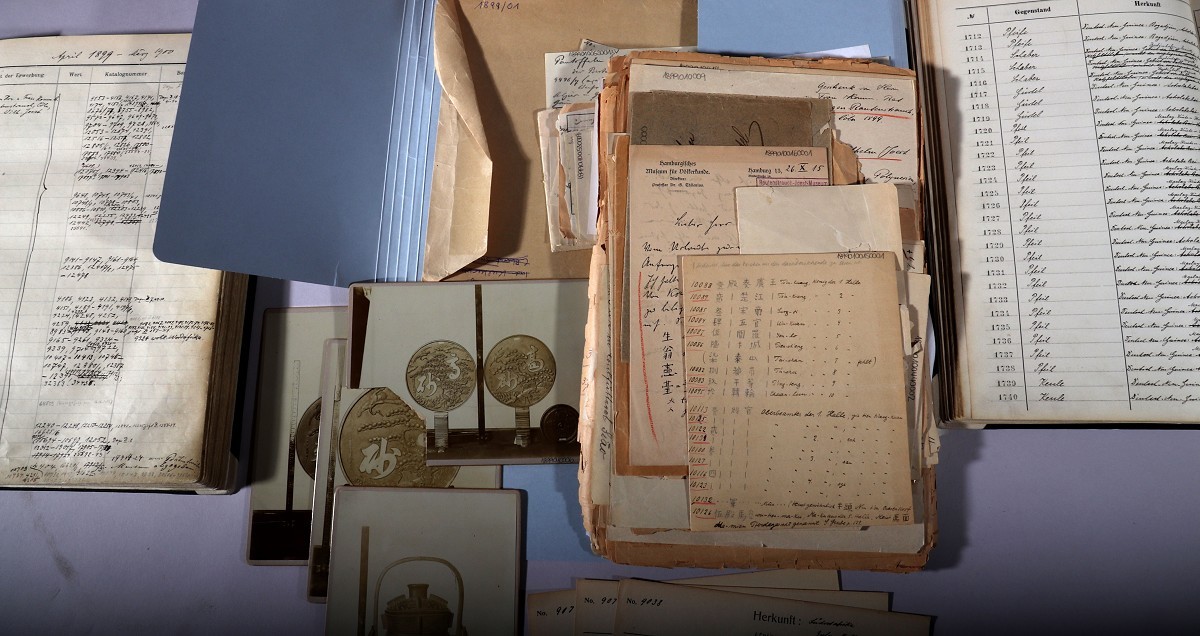Research
The RJM is committed to interdisciplinary, postcolonial research into its collections. We support dialog, knowledge exchange and cooperation with the descendants of the societies from which the collections originate, as well as with scholars, curators, activists, artists and actors. We consider participation and inclusion to be important elements for the polyphony and transparency of new research methods. We are therefore currently working in particular on a digitization strategy and the gradual indexing and disclosure of the provenances of our collection holdings.
The aim of provenance research is to ensure that the origins of the collections can be traced as completely as possible, from their creation to their current storage location. The legal, political, cultural and scientific circumstances and perspectives under which the cultural objects came to the museum need to be clarified.
“TheMuseumsLab” cooperation
Wilhelm Joest
Max von Oppenheim
The Ludwig Collection and its protagonists
Restoration Project: Woven Stories
Systematic provenance research
The RJM is taking up the challenge of comprehensively disclosing its holdings. A first step in this direction is the systematic examination of the entire collection within the framework of a research traineeship. For this purpose, the currently available information on provenances is to be reviewed and expanded.
The results will form the basis for the next steps, such as prioritising the holdings for in-depth research, expanding cooperation with societies of origin, and exchange with other museums. The results will also contribute to the overarching research landscape, e.g., in the form of publications and within the in-house presentation and communication concept.
Duration: 2020-2022
Project funding: Ministry of Culture and Science of the State of North Rhine-Westphalia within the framework of the funding programme Forschungsvolontariat Kunstmuseen NRW (holder: Museumsgesellschaft RJM)
Project staff: Yagmur Karakis
